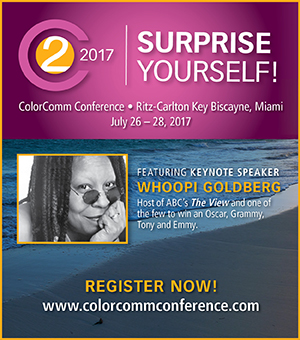What concluded as an effort to fill in the pieces missing in history began when a leading publisher’s geography textbook described slavery as African workers immigrating to the US “to work on agricultural plantations.”
As a result, DoSomething.org, a global movement for good decided to launch “Missing in history,” a campaign to address these kinds of errors and omissions are known as “erasure” and appear in textbooks all over the country.
Although the publisher who misrepresented slavery in the US apologized and worked hard to fix the problem, erasure in textbooks remains a huge issue impacting students across the country.
The advocacy group asked young to create bookmarks as a way of circumventing textbook publishing cycles and waiting for new books or new digital editions.
The campaign ended with over 7,189 bookmarks to reduce erasure and insert stories often left out of textbooks.
- “Being able to educate people about important “missing history” in America is very meaningful to me because not only am I able to learn about it, I am able to share with others and teach them about important historical figures.”- Kyndall
- “This campaign is important to me because it’s crucial for our society to acknowledge and value those who have fought for what is right.”-Charlotte
- “Learning about my own history is empowering, so I want to give others the chance to do the same.” -Sierra
- “We must honor and remember those who fought for equality, who laid the foundations for equal rights, so we could live freely as women, people of color, and as people of LGBTQ identities.” -Cynthia
- “History should be unbiased, and it’s important that no history is forgotten, no matter what.”-Madison
- “People in the past are the ones who have shaped our present in a positive way…many go unrecognized and that is not right!”- Daniela
- “This campaign is important to me because I am from the African American decent and I believe in honoring those from my background who helped America become all that it is. I want to spread awareness to those who do not know about all of the great African American figures who stood up for themselves and our race when no one else could. I am a strong believer of equality and just like all of these wonderful figures, I hope to see change in our World one day. I plan to continue to spread awareness to my peers and show how important all of this is.” -Mollie
- “This served as a much needed reminder that I can continue to stand in solidarity with people of color, with women, and with people of differing faiths in this time of turmoil.”- Anja
- “Learning about my own history is empowering, so I want to give others the chance to do the same.” -Sierra
DIVERGE talked to Pilar Barreyro, Discrimination Campaigns Lead to find out more:
Where did the idea for creating bookmarks come from?
We wanted to challenge eurocentric, whitewashed narratives around history story-telling and provide young people with an empowering action to put truth back into their textbooks and demand we remember some of the forgotten figures and events that have been monumental in shaping so much of US culture. Creating bookmarks was a way of circumventing textbook publishing cycles and waiting for new books or new digital editions. Making a bookmark allows for creative expression and is a literal inserting of truth back into textbooks.
Why is it significant?
Erasure is harmful. Failing to understand history can cause distorted views of contemporary society and can fuel ignorance and even hate. In an era where facts are being debated and truth is being distorted, it’s pretty visible to see that erasure of US history is an urgent matter that we must continue to fight against.
What kind of response have you gotten from it?
We’ve gotten a really positive response! Our members are enjoying inserting inclusive histories into their textbooks and demanding that we remember all histories. We’ve even seen entire classrooms participate in the action together as a way of reinforcing the importance of combating erasure in education. It’s powerful seeing young people feel empowered to demand that history be told truthfully.
What happens when the campaign ends?
We ran this campaign with a focus on Black History Month for February and we’ll continue to build off what we learn to provide more insight into erasure in other frameworks and contexts within education. We want to make sure that we always have something accessible to our members to combat misrepresented history and demand inclusive story-telling in their textbooks.











